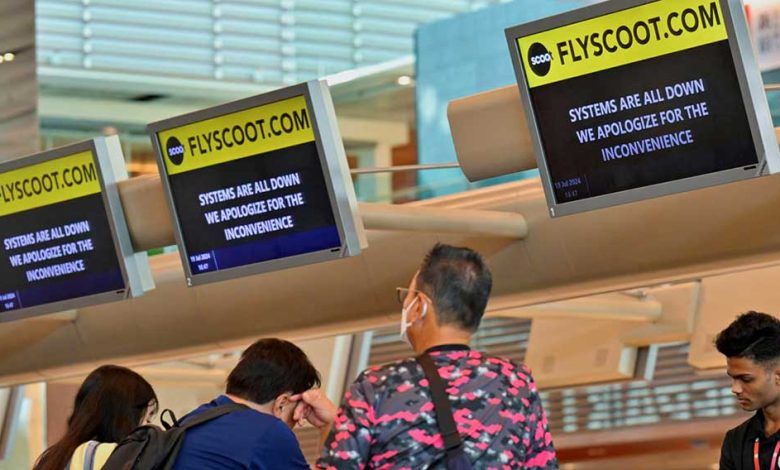Tech Outage Eases after Extensive Interruption

On Friday, July 19, a widespread software update failure by CrowdStrike, a major cybersecurity firm, led to global disruptions across various sectors. Airlines, healthcare facilities, shipping companies, and financial institutions were among the affected services, exposing the vulnerability of interconnected global technologies.
The incident caused significant delays and backlogs, including cancelled flights, missed medical appointments, and interrupted transactions, which could take days to resolve. The outage highlighted the challenge businesses face in preventing future disruptions from technology designed to protect their systems. The flawed software update from CrowdStrike, which was estimated to be an $83 billion company with over 20,000 subscribers globally, affected multiple industries. Key clients like Amazon.com and Microsoft experienced severe operational issues.
CrowdStrike’s CEO, George Kurtz, acknowledged a defect in “a single content update for Windows hosts” as the cause of the widespread issues. Despite quickly identifying and addressing the flaw, the incident raised questions about the dependency on a few large companies for critical cybersecurity infrastructure. Additionally, this outage underscored the need for organizations to implement effective contingency plans and robust backup systems to mitigate such failures in the future.
The fallout from the outage also impacted the stock market, with CrowdStrike shares falling by 11%. In contrast, competitors like SentinelOne and Palo Alto Networks saw their shares rise by 8% and 2%, respectively. Microsoft’s shares dropped by 0.7% amid the crisis.
Ann Johnson, who leads Microsoft’s security and compliance division, noted the massive scale of the outage, which solely affected systems using CrowdStrike software. She mentioned that hundreds of engineers were working with CrowdStrike to restore affected systems.
President Joe Biden was briefed on the situation as hackers exploited the outage for phishing and other malicious activities. U.S. Customs and Border Protection reported delays in processing, while the foreign ministries of the Netherlands and the United Arab Emirates also faced disruptions.
Gil Luria, senior software analyst at D.A. Davidson, emphasized the complexity and interconnectedness of global computing systems and the resulting vulnerabilities. He stressed the need for CrowdStrike and Microsoft to work diligently to prevent similar incidents in the future.
Overall, the incident served as a stark reminder of the risks inherent in our highly interdependent technological landscape and the critical importance of robust cybersecurity measures and contingency planning.





